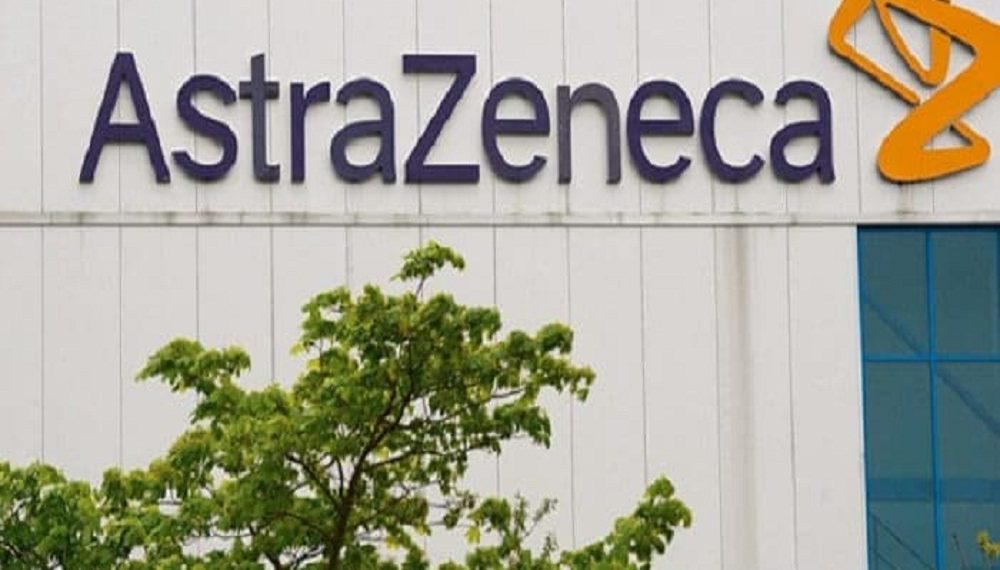AstraZeneca and MedImmune, its global biologics research and development arm, announced high-level results from the Phase III ARCTIC trial in patients with locally-advanced or metastatic non-small cell lung cancer (NSCLC) who have received at least two prior treatments.
This randomised, open-label, multi-centre trial assessed the efficacy and safety of the combination of Imfinzi (durvalumab) plus tremelimumab, as well as Imfinzi and tremelimumab monotherapies, versus standard-of-care chemotherapy (SoC) in patients with PDL1-low/negative NSCLC (sub-study B), and Imfinzi monotherapy versus SoC in patients with PDL1-high NSCLC (sub-study A).
In sub-study B, the combination of Imfinzi plus tremelimumab in patients with PD-L1 low/negative NSCLC did not meet the primary endpoints of a statistically-significant and clinically-meaningful improvement in progression-free survival (PFS) and overall survival (OS) compared to SoC. Activity and safety of monotherapy arms of sub-study B were consistent with prior published data.
Sub-study A was not powered for statistical significance; however, Imfinzi monotherapy showed a clinically-meaningful reduction in the risk of death compared to chemotherapy.
Full data from the ARCTIC trial will be presented at a forthcoming medical meeting.
Sean Bohen, Executive Vice President, Global Medicines Development and Chief Medical Officer, said: “While we are disappointed that the combination of Imfinzi plus tremelimumab did not result in a statistically-significant survival benefit in this heavily pre-treated patient population, we are encouraged by the activity of Imfinzi monotherapy observed in this trial and look forward to presenting the full data from the ARCTIC trial at an upcoming medical meeting.”
AstraZeneca recently received approval from the US FDA for Imfinzi for the treatment of patients with unresectable, Stage III NSCLC whose disease has not progressed following concurrent platinum-based chemotherapy and radiation therapy.
About ARCTIC
The ARCTIC trial was a randomised, open-label, multi-centre, global Phase III trial containing two sub-studies: sub-study A (1:1 randomisation of patients with PDL1-high tumours to Imfinzi (durvalumab) vs. SoC) and sub-study B (2:3:1:2 randomisation of patients with PDL1-low/negative tumours to Imfinzi monotherapy, Imfinzi plus tremelimumab or tremelimumab vs SoC). Tumour PD-L1 expression was assessed with the Ventana PD-L1 (SP263) assay with PD-L1 high defined as ≥25% of tumour cells with membrane staining.
About Imfinzi
Imfinzi is a human monoclonal antibody that binds to PD-L1 and blocks the interaction of PD-L1 with PD-1 and CD80, countering the tumour’s immune-evading tactics and releasing the inhibition of immune responses.
In February 2018, Imfinzi received US FDA approval for the treatment of patients with unresectable, Stage III NSCLC whose disease has not progressed following concurrent platinum-based chemotherapy and radiation therapy. Imfinzi also received accelerated approval in the US for the treatment of patients with locally-advanced or metastatic urothelial carcinoma, who have disease progression during or following platinum-containing chemotherapy, or whose disease has progressed within 12 months of receiving platinum-containing chemotherapy before (neoadjuvant) or after (adjuvant) surgery.
As part of a broad development programme, Imfinzi is also being tested as a monotherapy and in combination with tremelimumab, an anti-CTLA-4 monoclonal antibody and potential new medicine, as a first-line treatment for patients with NSCLC, small cell lung cancer, locally-advanced or metastatic urothelial carcinoma, head and neck cancer and other solid tumours.
About tremelimumab
Tremelimumab is a human monoclonal antibody and potential new medicines that targets the activity of cytotoxic T-lymphocyte-associated protein 4 (CTLA-4). Tremelimumab blocks the activity of CTLA-4, contributing to T cell activation and boosting the immune response to cancer. Tremelimumab is being tested in an extensive clinical-trial programme in combination with Imfinzi in NSCLC, locally-advanced or metastatic urothelial carcinoma, head and neck cancer, liver cancer and blood cancers.
About AstraZeneca in NSCLC
Lung cancer is the leading cause of cancer death among both men and women, accounting for about one-third of all cancer deaths and more than breast, prostate and colorectal cancers combined.
AstraZeneca has a comprehensive portfolio of approved and potential new medicines in late-stage clinical development for the treatment of NSCLC across all stages of disease and lines of therapy. We aim to address unmet needs of patients with EGFR-mutated tumours as a genetic driver of disease, which occur in 10-15% of NSCLC patients in the US and EU and 30-40% of NSCLC patients in Asia, with our approved medicines Iressa and Tagrisso and ongoing FLAURA and ADAURA trials. Our extensive late-stage immuno-oncology programme focuses on 75-80% of patients with NSCLC without a known genetic mutation. Our portfolio includes Imfinzi, an anti-PDL1 antibody, which is in development as monotherapy (ADJUVANT, PACIFIC, MYSTIC, PEARL and ARCTIC trials) and in combination with tremelimumab (MYSTIC, NEPTUNE, ARCTIC and POSEIDON trials).
About AstraZeneca’s Approach to Immuno-Oncology
Immuno-Oncology (IO) is a therapeutic approach designed to stimulate the body’s immune system to attack tumours. At AstraZeneca and MedImmune, our biologics research and development arm, our IO portfolio is anchored by immunotherapies that have been designed to overcome anti-tumour immune suppression. We believe that IO-based therapies will offer the potential for life-changing cancer treatments for the clear majority of patients.
We are pursuing a comprehensive clinical-trial programme that includes Imfinzi (anti-PD-L1) as monotherapy and in combination with tremelimumab (anti-CTLA-4) in multiple tumour types, stages of disease, and lines of therapy, using the PD-L1 biomarker as a decision-making tool to define the best potential treatment path for a patient. In addition, the ability to combine our IO portfolio with small, targeted molecules from across our Oncology pipeline, and with those of our research partners, may provide new treatment options across a broad range of tumours.
About AstraZeneca in Oncology
AstraZeneca has a deep-rooted heritage in Oncology and offers a quickly-growing portfolio of new medicines that has the potential to transform patients’ lives and the Company’s future. With at least six new medicines to be launched between 2014 and 2020, and a broad pipeline of small molecules and biologics in development, we are committed to advancing Oncology as a growth driver for AstraZeneca, focused on lung, ovarian, breast and blood cancers. In addition to our core capabilities, we actively pursue innovative partnerships and investments that accelerate the delivery of our strategy as illustrated by our investment in Acerta Pharma in haematology.
By harnessing the power of four scientific platforms – Immuno-Oncology, Tumour Drivers and Resistance, DNA Damage Response and Antibody Drug Conjugates – and by championing the development of personalised combinations, AstraZeneca has the vision to redefine cancer treatment and, one day, eliminate cancer as a cause of death.
About MedImmune
MedImmune is the global biologics research and development arm of AstraZeneca, a global, innovation-driven biopharmaceutical business that focuses on the discovery, development and commercialisation of small-molecule and biologic prescription medicines. MedImmune is pioneering innovative research and exploring novel pathways across Oncology; Respiratory; Cardiovascular, Renal & Metabolic Diseases; and Infection and Vaccines. The MedImmune headquarters is located in Gaithersburg, MD, one of AstraZeneca’s three global R&D centres, with additional sites in Cambridge, UK, and Mountain View, CA. For more information, please visit www.medimmune.com.
About AstraZeneca
AstraZeneca is a global, science-led biopharmaceutical company that focuses on the discovery, development and commercialisation of prescription medicines, primarily for the treatment of diseases in three therapy areas – Oncology, Cardiovascular, Renal & Metabolism and Respiratory. The Company also is selectively active in the areas of autoimmunity, neuroscience and infection. AstraZeneca operates in over 100 countries and its innovative medicines are used by millions of patients worldwide. For more information, please visit www.astrazeneca.com



















